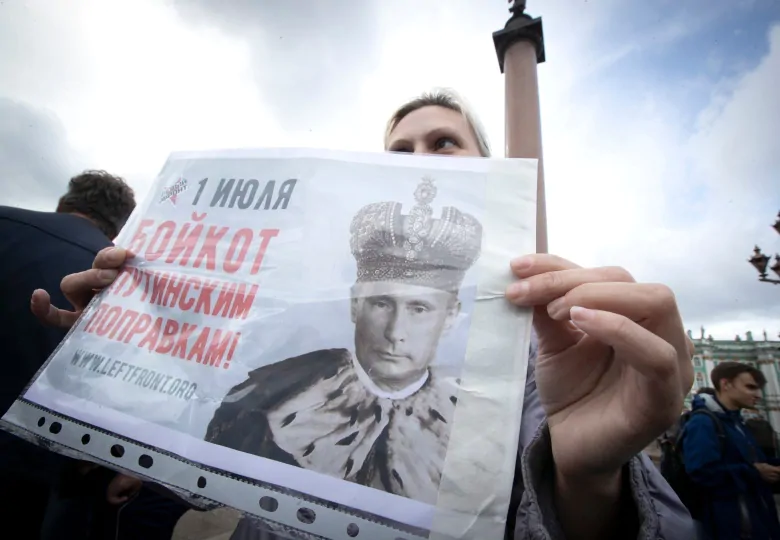Russian voters approved changes to their country’s constitution that will allow President Vladimir Putin to potentially hold power until 2036, but the weeklong plebiscite was tarnished by widespread reports of pressure on voters and other irregularities.
Russian voters approved changes to the constitution that will allow President Vladimir Putin to potentially hold power until 2036, but the weeklong plebiscite that concluded Wednesday was tarnished by widespread reports of pressure on voters and other irregularities.
With three-fourths of all precincts counted, 77.6 per cent voted for the constitutional amendments, according to election officials.
For the first time in Russia, polls were kept open for a week to bolster turnout without increasing crowds casting ballots amid the coronavirus pandemic — a provision that Kremlin critics denounced as an extra tool to manipulate the outcome.
A massive propaganda campaign and the opposition’s failure to mount a co-ordinated challenge helped Putin get the result he wanted, but the plebiscite could end up eroding his position because of the unconventional methods used to boost participation and the dubious legal basis for the balloting.

The amendments that would allow Putin to run for two more six-year terms, in 2024 and 2030, are part of a package of constitutional changes that also outlaw same-sex marriage, mention “a belief in God as a core value” and emphasize the primacy of Russian law over international norms.
Voters could not cast ballots on the individual amendments, only on the entire group.
Nationwide turnout was reported at 65 per cent of the electorate.
Kremlin critics and independent election observers questioned the turnout figures.
Claims that turnout was artificially boosted
“We look at neighbouring regions, and anomalies are obvious — there are regions where the turnout is artificially [boosted], there are regions where it is more or less real,” Grigory Melkonyants, co-chair of the independent election monitoring group Golos, told The Associated Press.
Putin voted at a Moscow polling station, dutifully showing his passport to the election worker. His face was uncovered, unlike most of the other voters who were offered free masks at the entrance.

The vote completes a convoluted saga that began in January, when Putin first proposed constitutional changes including broadening the powers of parliament and redistributing authority among the branches of government. Those proposals stoked speculation he might seek to become parliamentary speaker or chair of the State Council when his presidential term ends in 2024.

